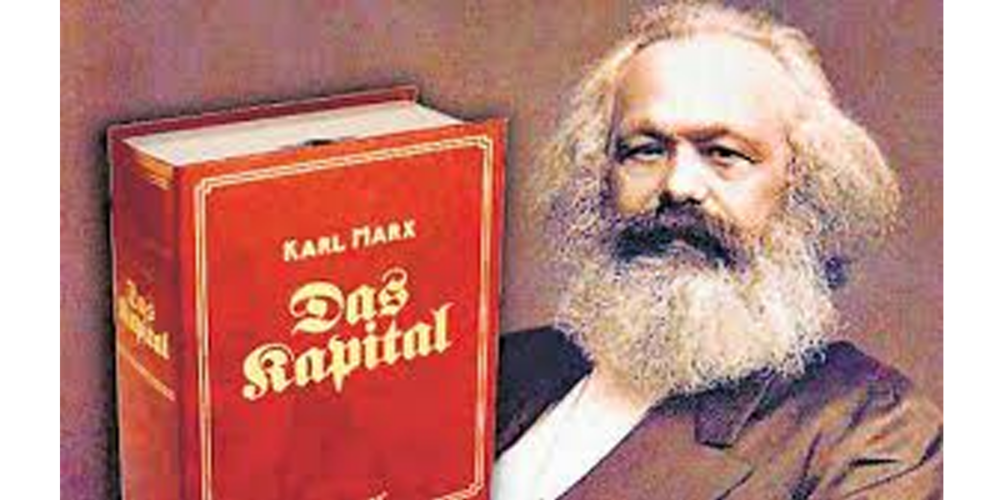Ireland suffered under the weight of imperialism in the past for the longest time and today continues to bear the oppression of the triple-lock of imperialism. People who are acquainted with Irish history know well the destruction and damage caused by imperialism on the population, the economy, culture, language, nature, and psyche of its people.
Marx analysed capitalism in its nascent stage, explaining the origin of surplus value. Though it was impossible for him to predict everything that capitalism would evolve into, Marx made a concrete analysis of the material conditions of his time. Marx kept revising the contents of Capital as new data arrived which is one of the reasons it took twenty years to finish the first volume of his magnum opus.
During Lenin’s time, capitalism reached the stage of imperialism, the five features of which – namely, the emergence of monopoly, development of finance capital, export of capital, sharing of the world by capitalist monopolies, and division of the world by capitalist powers were explained in Imperialism: the Highest Stage of Capitalism. But Lenin did not combine Marx’s value theory with his theory of imperialism, and we cannot criticise him for not predicting the details of 21st century imperialism, global supply chains, unequal exchange, outsourcing, etc. Lenin was analysing the concrete conditions of his time. Does that mean Marx and Lenin were wrong? Not at all. The foundations they laid are still intact and right; it is for us to analyse the realities we live in and expand the science of Marxism. In this spirit, economists like Michael Roberts and John Smith have written extensively about imperialism in the 21st century.
Marxists know that capitalist production is not simply the production of commodities, it is also production of surplus value, which is the value of labour power subtracted from value produced by labour power, created by the exploitative relation between labour and capital. Ways in which surplus value is appropriated include by hegemony of currency (US dollar), income flows due to investments, unequal exchange, and changes in exchange rates. The unequal exchange in trade combines Marx’s theory of value and Lenin’s theory of imperialism.
Imperialism in the 21st century works by means of unequal exchange in trade. If a country from the technologically developed imperial bloc trades with a country from the global south, there is a flow of surplus value towards the imperial country. This is like water which flows from higher to lower altitude. The factor which facilitates this flow is the difference in the organic composition of capital and rate of exploitation. The organic composition of capital (c/v) is the ratio between constant capital (c) – machinery, raw materials, etc – to the variable capital (v), or wages. The rate of exploitation (s/v), is the ratio between surplus value (s) and variable capital (v). The imperial countries are the ones which have higher productivity, due to higher organic composition of capital and lower rate of exploitation.
The new imperialism requires unequal levels of technology to appropriate surplus value, this is why the US is nervous about China’s technological advancements. The developing countries have to depend on the imperialist bloc for technology. Imperialism prevents sovereign countries from developing technologies independently and causes “brain drain”, attracting the best human talent from developing countries. Therefore, technology is the new battlefield in the world of imperialism of the 21st century. Imperialism takes the form of military intervention or coup d’etat when this flow of surplus value is disturbed in any way.
The fact that the US has been involved in many wars and interferences around the world since 1776 is a testament to the fact that the essence of imperialism is appropriation of surplus value and it only takes the form of military intervention when this is required to maintain the appropriation. The “doctrines” of US foreign policy, starting from Monroe doctrine in 1823, have been designed for the purpose of surplus value appropriation.
Even if one country in the imperial bloc imposes rules (like the US), the other countries in the bloc don’t react because that imposition of hegemony suits the interest of the capitalists of all countries of the imperial bloc. Much geopolitical drama is the ramifications of the quest by imperial countries to extract surplus value from the oppressed countries.
To be radical is to grasp the root of the problem, and Marx’s value theory is the root of understanding imperialism. The remedy against imperialism lies in the working class of every country rising to protect their sovereignty and fight for the welfare of the many instead of the few.






